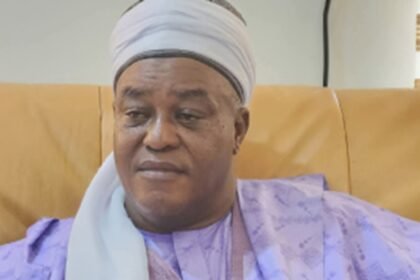The Economic and Financial Crimes Commission (EFCC) has announced the recovery of funds lost to the notorious CBEX cryptocurrency investment scam, which defrauded hundreds of thousands of Nigerians. EFCC Chairman, Ola Olukoyede, confirmed that the process of final forfeiture of the recovered assets is currently ongoing.
The CBEX scheme, which collapsed in April 2025, reportedly attracted over 600,000 investors and resulted in financial losses amounting to ₦1.3 trillion. Olukoyede disclosed the update on Thursday during an event in Abuja commemorating the 2025 Africa Anti-Corruption Day.
He stated that several individuals behind the fraudulent scheme had been arrested and are now facing prosecution. “We have found a lot of people culpable. Those who promoted that scheme are within our jurisdiction and have been arrested. They are being prosecuted. And we can also say that money has been recovered,” he said.
Though Olukoyede did not specify the exact amount recovered, he assured the public that the EFCC is fully committed to ensuring justice is served.
Describing the CBEX scam as a prime example of virtual asset and Ponzi fraud, Olukoyede warned that such schemes are becoming increasingly prevalent across the African continent. He urged Nigerians to be more vigilant and skeptical of unrealistic returns on investments.
“Ponzi schemes remain one of the most pervasive threats facing unsuspecting investors. The CBEX case is a clear example. Nigerians must begin to conduct due diligence before committing their resources to such platforms,” he said.
Olukoyede emphasized that many victims of such scams fail to take timely action or report suspicious activities early enough. “When people were collecting 100% returns in one week or one month, nobody complained. Nobody reported to the EFCC. It was only when the bubble burst that people expected us to perform magic,” he added.
The EFCC chairman also revealed that foreign nationals have been implicated in the CBEX operation, forming part of a broader cybercrime syndicate operating across Africa. He referenced a major crackdown, dubbed Operation Flush, in which several foreign suspects involved in cybercrimes were arrested in Lagos.
“As of today, we have secured close to 150 convictions, and some of those convicted are already serving jail terms. Once they are done, we will deport them,” Olukoyede said.
He further stressed the EFCC’s commitment to pursuing all cases to their logical conclusion, including those that require international collaboration. “We are no longer the EFCC that drops cases halfway. Nigerians should trust us to finish what we start,” he said.
Olukoyede concluded by calling on the public to avoid unregulated financial platforms and to promptly report any suspicious investment activities. He reiterated that the fight against corruption is a shared responsibility requiring vigilance and early intervention.







